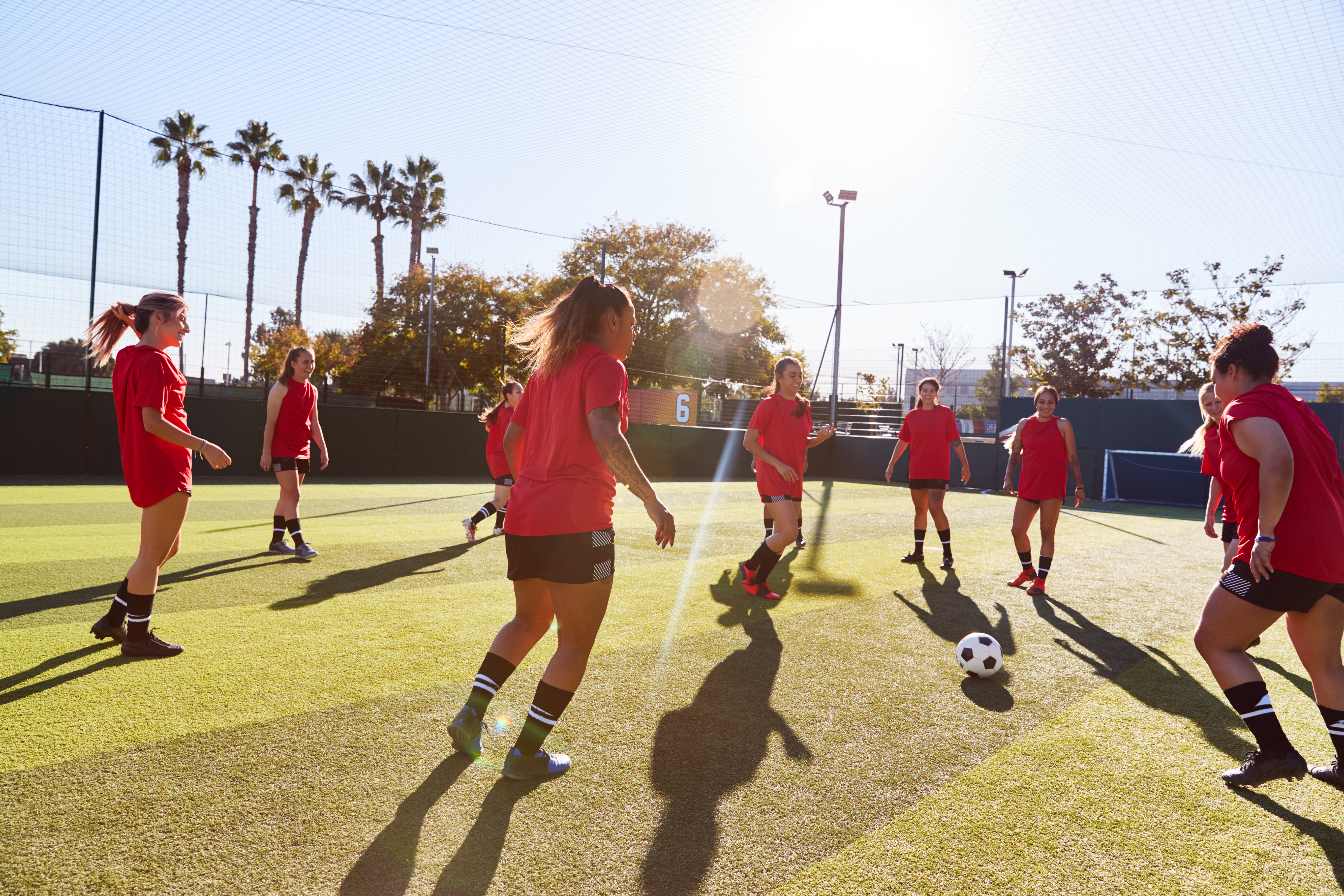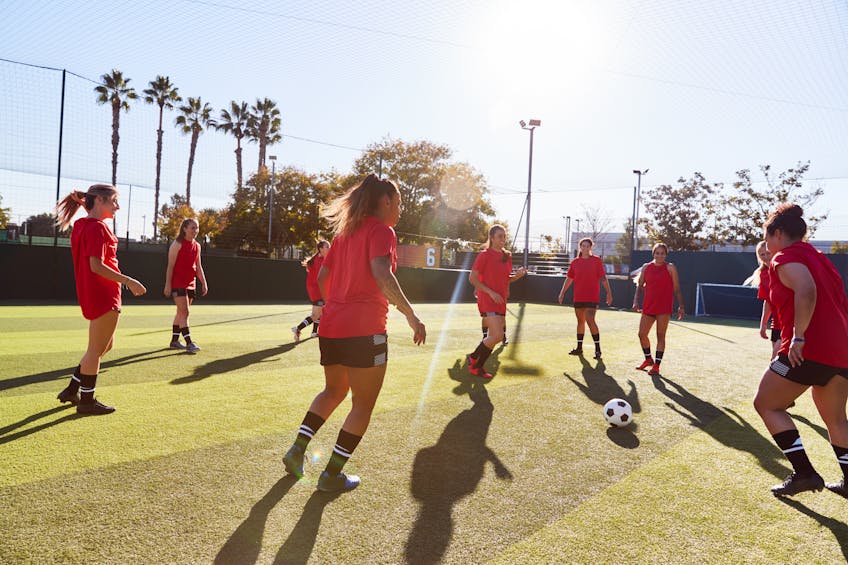Table of Contents

As the Women’s World Cup continues to captivate audiences in Australia and around the globe, let’s take a moment to celebrate the remarkable talent and spirit of women in football. While we embrace the passion and skill displayed on the field, it’s essential to address a concern that affects female players: ACL injuries. In this blog post, we’ll shed light on why women may be more susceptible to these injuries and explore the power of injury prevention. By focusing on building strong collagen support, including vitamin C and collagen supplementation, we start to support a safer and more promising journey for women in football, both during and beyond the Women’s World Cup.
Why are women more likely to suffer from ACL injuries?
The Women’s World Cup has served as a magnificent celebration of women’s football, bringing together teams from different nations to showcase their extraordinary abilities.
Even in the midst of this celebration, it’s essential to address the topic of ACL injuries that impact female footballers more frequently than their male counterparts. Understanding the factors contributing to this disparity allows us to work towards a positive change. By empowering women with knowledge and preventive measures, we can keep them on the field, doing what they love, and inspiring future generations.
- Anatomy: Women have a narrower space within the knee joint, known as the intercondylar notch, which can increase the risk of ACL tears compared to men.
- Hormonal Factors: Hormonal fluctuations, especially during the menstrual cycle, may affect ligament laxity, making women more susceptible to ACL injuries.
- Neuromuscular Differences: Women tend to have different landing and cutting mechanics, such as greater knee valgus (inward collapse of the knee), which may lead to increased stress on the ACL during dynamic movements.
- Ligament Size and Strength: Studies suggest that women may have smaller and weaker ACLs compared to men, making them more vulnerable to injuries.
- Playing Style: Women’s football often involves more agility, quick changes of direction, and sudden accelerations, which tends to put additional strain on the knee joint.
It’s essential to consider these factors while developing injury prevention strategies and promoting proper training techniques to reduce the risk of ACL injuries in female athletes.
Building a Strong Collagen Network: A Step Towards Brilliance
Collagen is a critical protein that acts as the backbone of our connective tissues, providing essential support and strength throughout the body. When it comes to the ACL joint, collagen plays a pivotal role in maintaining its integrity and functionality. Imagine collagen as a robust scaffold that holds the ACL together.
The ACL is a band of tissue that connects the thigh bone (femur) to the shin bone (tibia), stabilizing the knee joint and allowing it to withstand the pressures of running, jumping, and abrupt changes in direction. Collagen fibers within the ACL act as the building blocks that give it the strength to support these movements.
With time, physical activities, and potential injuries, the collagen fibers in our bodies can naturally wear down, affecting the strength and resilience of the ACL. This is where the importance of maintaining collagen support comes into play.
A Positive Approach to Injury Prevention
1. Collagen Support: incorporate collagen-supporting foods like vitamin C-rich fruits and vegetables, as well as considering collagen and vitamin C supplementation.
2. Dynamic Warm-ups and Stretching: engaging in dynamic warm-up routines and proper stretching can enhance flexibility and reduce the risk of injuries.
3. Strength Training for Resilience: Emphasising the benefits of strength training helps players build stability and confidence, protecting their knees during intense matches.
4. Celebrating Self-Care and Rest: Embracing the significance of rest and recovery encourages players to care for their bodies, allowing them to stay strong and focused throughout the tournament.
As the Women’s World Cup continues to ignite our passion for football, let’s channel that enthusiasm into ensuring the health and well-being of inspiring female athletes. By understanding the factors contributing to ACL injuries and promoting injury prevention through strong collagen support, we can empower women to shine brightly on the field and beyond. Together, we create a future where women in football flourish, inspiring generations to come with their extraordinary skills and unyielding spirit.





More Stories
Thoughts as of late: on evolving, growing & that tiny voice inside
County Health Officials Report 17% Increase in Tuberculosis Cases
10 Most Nutrient-Rich Foods To Include In Your Diet